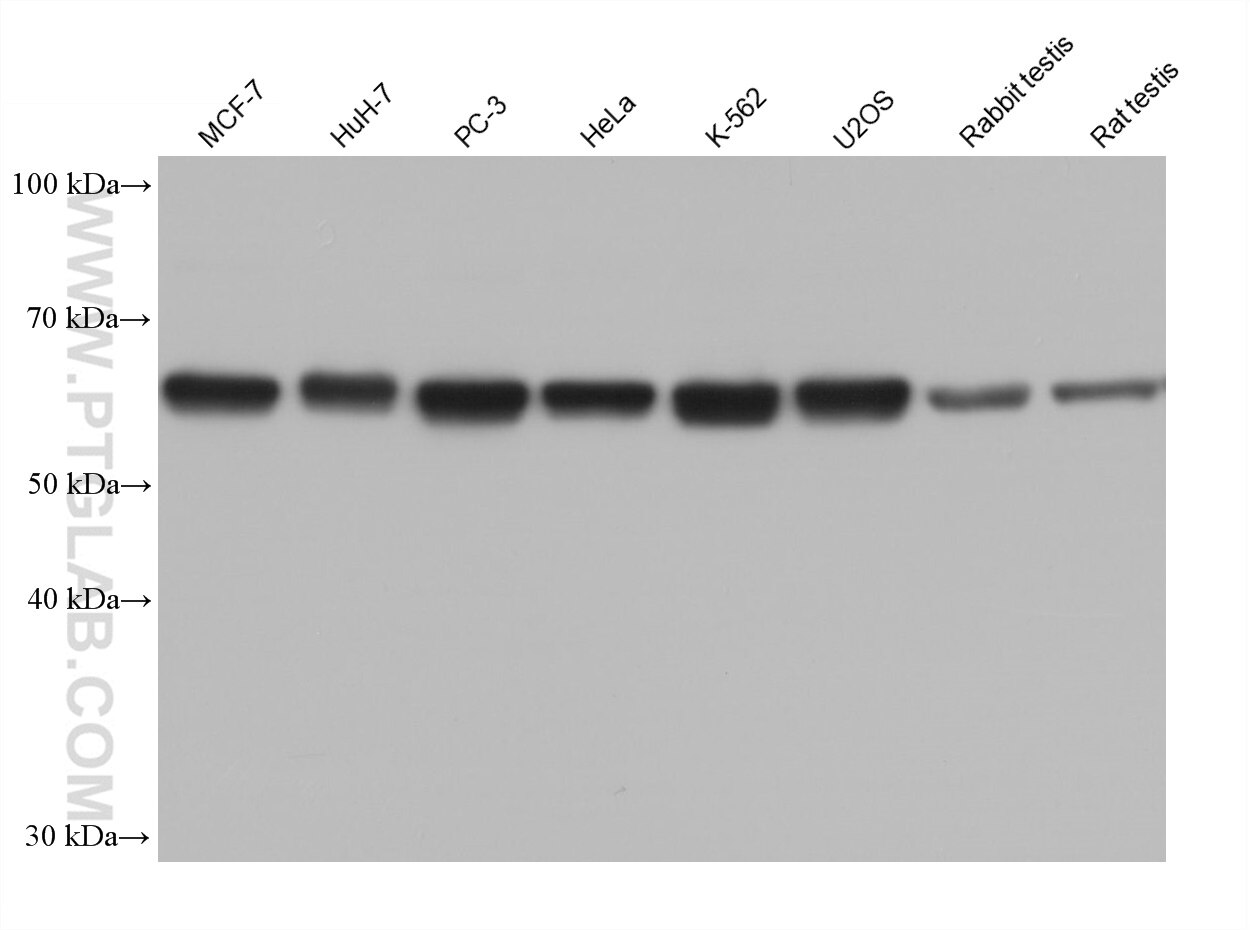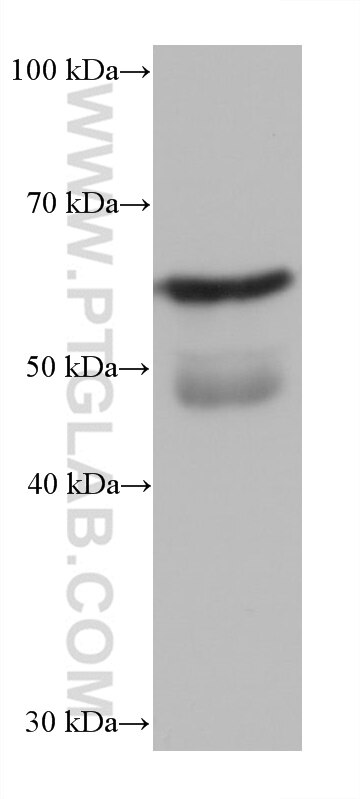PUF60 Monoclonal antibody
PUF60 Monoclonal Antibody for WB, ELISA
Host / Isotype
Mouse / IgG1
Reactivity
Human, mouse, rat, rabbit
Applications
WB, ELISA
Conjugate
Unconjugated
CloneNo.
1A3A1
Cat no : 68533-1-Ig
Synonyms
Validation Data Gallery
Tested Applications
| Positive WB detected in | MCF-7 cells, mouse testis tissue |
Recommended dilution
| Application | Dilution |
|---|---|
| Western Blot (WB) | WB : 1:5000-1:50000 |
| It is recommended that this reagent should be titrated in each testing system to obtain optimal results. | |
| Sample-dependent, Check data in validation data gallery. | |
Product Information
68533-1-Ig targets PUF60 in WB, ELISA applications and shows reactivity with Human, mouse, rat, rabbit samples.
| Tested Reactivity | Human, mouse, rat, rabbit |
| Host / Isotype | Mouse / IgG1 |
| Class | Monoclonal |
| Type | Antibody |
| Immunogen | PUF60 fusion protein Ag33930 |
| Full Name | poly-U binding splicing factor 60KDa |
| Calculated Molecular Weight | 60 kDa |
| Observed Molecular Weight | 60 kDa |
| GenBank Accession Number | BC008875 |
| Gene Symbol | PUF60 |
| Gene ID (NCBI) | 22827 |
| Conjugate | Unconjugated |
| Form | Liquid |
| Purification Method | Protein G purification |
| Storage Buffer | PBS with 0.02% sodium azide and 50% glycerol pH 7.3. |
| Storage Conditions | Store at -20°C. Stable for one year after shipment. Aliquoting is unnecessary for -20oC storage. 20ul sizes contain 0.1% BSA. |
Background Information
Poly-U-binding factor 60(PUF60) is a splicing factor homologous to and complementary in function to U2AF, which involves in pre-mRNA splicing, a stepwise process initiated by binding. Also PUF60 involves in other nuclear processes such as apoptosis and transcription regulation. It can interact with and repress FUBP1-induced transcriptional activation via the core-TFIIH basal transcription factor. However, it has no repression activity in xeroderma pigmentosum complementation group B (XPB) cells.
Protocols
| Product Specific Protocols | |
|---|---|
| WB protocol for PUF60 antibody 68533-1-Ig | Download protocol |
| Standard Protocols | |
|---|---|
| Click here to view our Standard Protocols |



